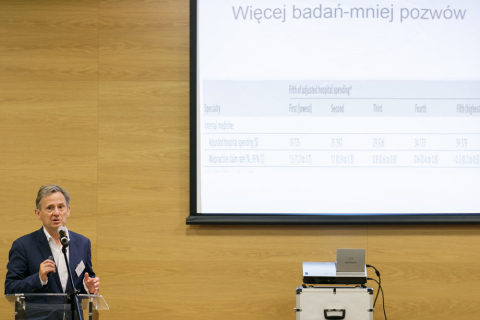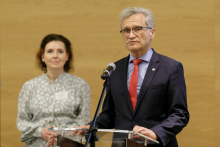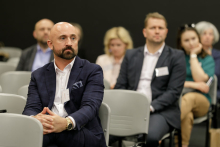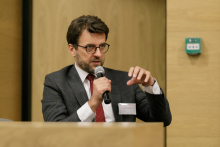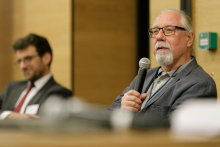The participants were welcomed by Maria Boratyńska, MD, PhD, editor-in-chief of the quarterly "Medical Law Review." Also speaking was Rector Professor Zbigniew Gaciong, who stressed that the conference program includes virtually all legal aspects relevant to the medical profession. He also noted that the forum is intended not only for physicians, but also for all other people who participate in patient care.
Doctors' duties
Who should the doctor help first, in a situation where several people require this help? Whether to save the younger person, or the one in worse condition - or maybe on the contrary - the one with better prognosis. Jan Kulesza, MD, PhD, of the University of Lodz spoke during the forum about the difficult decisions facing doctors. In turn, the lecture by Dr. Piotr Lewulis referred to the controversy over the publication of photos of corpses and other materials from autopsies or pre-trial proceedings in investigations. Unfortunately, it happens that such materials are published in social media not for scientific purposes, but to cause sensation.
Defensive medicine
A growing problem in many countries is the ordering of many quite unnecessary tests, solely because the patient or his family demands it. - This so-called defensive medicine serves the doctor more than the patient - said Prof. Tomasz Pasierski. - In the UK, as many as 78 percent of doctors admit to using it.
Meanwhile, it can prove harmful to the patient. Prof. Pasierski gave the example of a 70-year-old post-myocardial infarction patient who was qualified for colon surgery. He was unnecessarily given a coronary angiography. The test contributed nothing, but increased the time until cancer surgery by two months. A month later, the patient was diagnosed with liver metastases.
Research debate
An important part of the forum was a debate on the legal and ethical aspects of conducting basic research and the usefulness of research on models. The introduction to the discussion was a speech by Przemysław Konieczniak, MD, PhD, of the University of Warsaw. The rest of the discussion included the topic of using animals for experimental research. Experts stressed that the current law protects animals very well from unwarranted research, and experiments are conducted ethically. They also discussed whether basic research, which by definition does not translate directly into practical applications, is justified at all. -Yes, such research is justified, as application research is later developed on the basis of it - replied Prof. Włodarski.
The debate also addressed the interesting issue of publishing research results that yield a negative result, i.e., contradicting the research thesis. Although scientists do not publish them very often, they are very important, because they provide information for others not to study a given concept anymore - said Prof. Paweł Włodarski. According to Prof. Jacek Malejczyk, publishers are more willing to publish "negative" results today than in the past , and such publications are of particular value in genetic research. Thanks to them, genes previously suspected of having mutations responsible for the development of the disease can be excluded from costly diagnostics.
Conscience, ethics and patient protection
During the two days of the forum, you could also attend sessions on: "The doctor in the courtroom," "Special health care," "Around the doctor's conscience clause," "On (non)standards of treatment and medical care," and "Health care for patients with mental disorders." Experts also discussed the permissible limits of treatment and representation of the interests of dependents. Difficult and legally complex ethical topics such as the permissibility of waiving futile therapy, the right of a dying person to consent to pain treatment versus the right to die in peace, the continuation of pregnancy in the body of a patient on the verge of life... came up in the discussion.
A great many issues were raised and analyzed at the forum, which cannot be conclusively resolved. However, the very identification of the problems and the discussion around them are already of great value.
Detailed program of the conference
